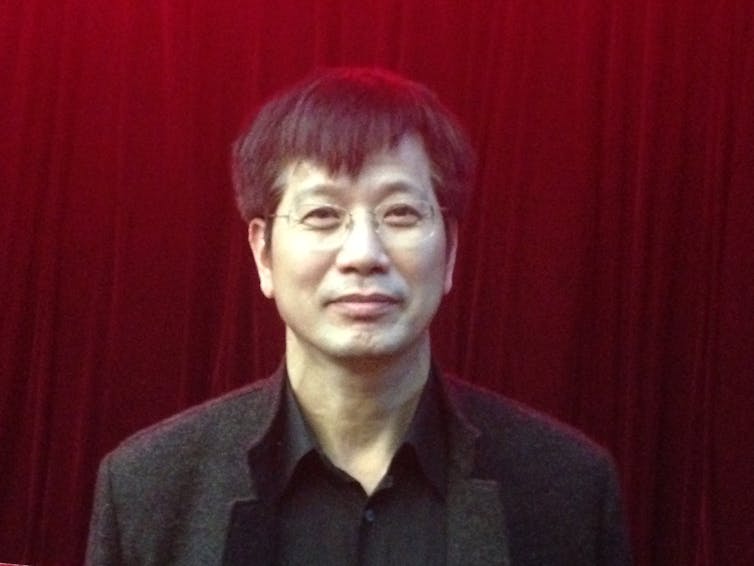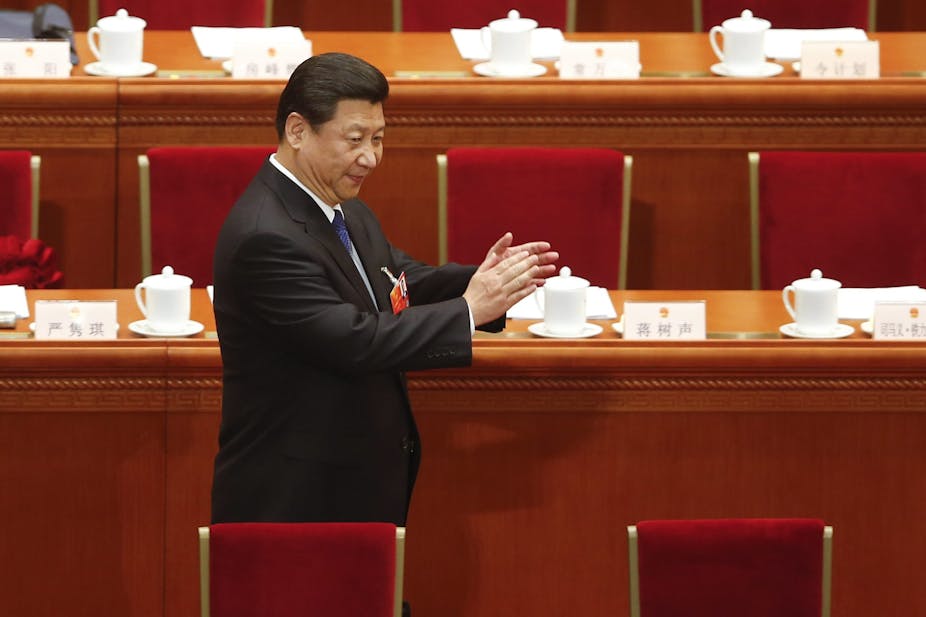“If you want to know the future of the world,” Yu Keping says, pouring green tea into a big red mug, “please understand China.” He pauses. “But if you want to know China, please understand the Chinese Communist Party (CCP).”
My early morning breakfast with one of China’s most respected intellectuals begins. Despite keeping a measured distance from television and radio, and journalists in general, Yu Keping is what the Chinese call yú lùn ling xiù, a public opinion leader. In the English-speaking world, he’s a prominent figure in the booming business of China watching and China analysis, and deservedly so.
We have an hour, so we head straight to the great discussion that’s occupying China since the CCP’s 18th National Congress, about the party’s key priorities and the stated need to “deepen reforms”. What exactly does this mean? Is it mere talk?
“The main priority of the CCP is to improve the quality of life of Chinese people by promoting economic growth,” he replies. “Although China is now the world’s second-largest economy, the quality of our economic growth lags far behind that of Western countries.
"Working for greater equality and justice are reform priorities. The break-neck speed of economic growth during the past few decades has widened the gap between rich and poor. It’s still widening. That’s why the party wants to implement new taxation and redistribution policies.”
Yu continues: “Protecting the environment is equally vital. A sad fact of China’s remarkable economic growth is the deterioration of the environment. In Beijing, where I live, the air is clogged with poisonous fine particles.
"Then there are the linked issues of corruption and social stability. China’s transition is rapid. There are so many challenges and social tensions.”
But which social fault lines are primary? I ask him about the bitter conflicts in Xinjiang and Tibet and the deep tensions between local CCP officials and local people.
“Several key challenges are now shaping the future of China,” he replies. “The prime tensions are between economic development and social fairness; economic growth and ecological protection; social stability and political democracy; individual rights and public goods; and between the China model and universal values.”
Modernising the CCP
This is familiar stuff, as if it came straight from recent party documents. I press Yu to be more specific about where the party is headed. In recent months, he has called publicly for the “modernisation” of cadre training.
Since the CCP is the sole ruling party and the head and tail of political power – “the CCP is an elite vanguard party” – how well it governs depends heavily on what’s taught within its growing numbers of party schools, cadre training programs, “academies of governance”, overseas cadre training schemes and tertiary-level courses - for instance at Tsinghua University. Yu tells me he favours “strengthening educational content” in line with “the needs of the knowledge economy and the information age”.
“In the past,” he adds, “cadre training was designed to indoctrinate officials. The system’s outdated. What’s needed is its national upgrading and greater professionalism.”
Tongue in cheek, I suggest that Yu’s calls for a “self-purifying” and “self-perfecting” CCP reminds me of Martin Luther’s early modern struggles in Europe against the wayward church. I deliberately provoke: “Yu Keping: the Martin Luther of the Chinese Communist Party!”
He chuckles, jokingly thanks me for the back-handed compliment, self-effacingly rejects the analogy, all before outlining the inner-party reforms that are needed. Thanks to the modernisation of cadre education, Yu says, great improvements of cadres’ quality and governing capacity have been made.
Yet when assessed overall, he adds, the training schemes are too costly and their achievements mixed. Domestic and foreign research trips are sometimes turned into “pleasure excursions”. Sabbatical schemes are abused.
Training institutions function as schools of corruption, what Yu calls “cadre entertainment centres”. He adds: “Some cadres spend their time during training sessions eating, drinking and partying, and becoming degenerate and corrupt.”
Frank language, so I press Yu to share his thoughts about other obstacles the CCP faces. Many outsiders note the strange incoherence of the political language used by the party. How can a ruling party govern in tongues?
Party documents and advertising (that’s what it is) speak of ancient Chinese civilisation, social governance, comprehensive deepening of reforms, Marx and Engels, Confucius, socialism with Chinese characteristics, people’s democracy, the China Dream and getting rich through the market – all in the same breath, it seems.
Isn’t this a recipe for confusion, inside and outside the party, potentially a turn-off, the stuff of cruel jokes, a strictly crafted language game that looks to many people more like babbling maquillage? Or is it a source of strength for a governing party that wants to be all things to all people, a Chinese equivalent of Western “catch all” parties?
“Confusing as it may seem to outsiders, the language of the party reflects its complex history,” says Yu. “In China, political terms invented by party theoreticians play a vital role. Every leader has his favourite vision.
”Xi Jinping’s China Dream stands within this tradition. Leaders want to leave their imprint on the system. Hence all these terms are preserved, as reminders of the past, markers of the present and indicators of future tasks.“

Making a one-party state accountable
We turn to the politically sensitive question of accountability, ze ren. Yu has written that three basic questions must be asked when understanding how a polity is governed. Who governs? What means are used? How effective are these means in achieving the goals they set for themselves?
I suggest there’s a fourth dimension, the big and potentially dangerous question of whether or not effective mechanisms are available for enabling the governed to hold governors publicly accountable. Doesn’t a vanguard party whose membership comprises only 7% of the population have to pay special attention to this question?
"Yes, it’s most important,” replies Yu. “For years, I’ve stressed the need to make the party and its members more accountable to the public. It’s the key to improving the governance of China.”
But how is this to be done, I ask? We skirt around a sensitive subject: the revival by Xi Jinping, since assuming office, of the old “mass line campaign” tradition that stretches back to Mao. Instead of purges, Yu wants to talk about the principle of how to prevent the abuse of power.
“Only through democracy and the rule of law can the problem of accountability be fundamentally resolved,” he notes. “Future reforms must include the delegation and restraint of power. Along these lines, the 18th Party Congress agreed the need for giving priority to greater political transparency, deliberative democracy and the rule of law.”
I ask Yu to explain what exactly restricting power might mean in practice.
“Put simply,” he says, “it means that if officials don’t carry out their duties properly, then citizens should have the right to remove them on the grounds of incompetence. Restricting power also means the government keeps the public informed about important decisions. Without political transparency, there can’t be accountability. That’s why budgetary transparency, which has been absent in China, is so important and now at the top of the reform agenda.”
Loyalist with a reformist vision
It’s clear that Yu Keping is unswervingly loyal to the party. He’s not a new Martin Luther. But he is a party modernist.
He’s well aware that middle-class membership of the CCP is rising and that, for some time, their possible hijacking of the party as a vehicle of self-enrichment, at the expense of “the people”, has been a topic of private discussion. He’s aware, too, that many outside China watchers insist that the CCP is an instrument of the hyper-rich red princelings, tai zi, who’ve made fortunes on the backs of the Deng Xiaoping reforms.
Yu prefers to emphasise that the CCP is the bearer of substantial improvements to the peoples of China. Although its mission is unfinished, he tells me he’s sure it will prove resilient under pressure from future reforms. When I suggest that the reforms he has in mind, greater accountability for instance, may backfire on the CCP, making it vulnerable to outright public rejection, he looks unworried.
“There are risks, and past mistakes have been made,” he says. “But I’m unconcerned, fully confident the party has sufficient governing capacity to manage and control the risks. Actually, we don’t have any other choice, for without reforms tensions will accumulate. Things would grow more dangerous.”
As final sips of tea are taken, Yu summarises his modernising vision. The party must serve as a living reminder to the whole population that things were once worse in China; that things can get better; and that without the CCP’s leadership, progress would be at risk.
“The main task,” he says, sounding very much the mainstream progressive, “is to transform the party from a revolutionary party to a ruling party. This requires the embrace of dynamic stability (dòngtài wěndìng).”
Yu glances at his watch. Our hour ends with a drop of firm advice. Dynamic stability doesn’t square with propaganda, Yu urges.
The party will have to kick the habit of trying to “keep the lid on everything”. In its thinking and its practice, he says, the CCP must strive to grow smarter. It needs to learn to be “a learning party”.

